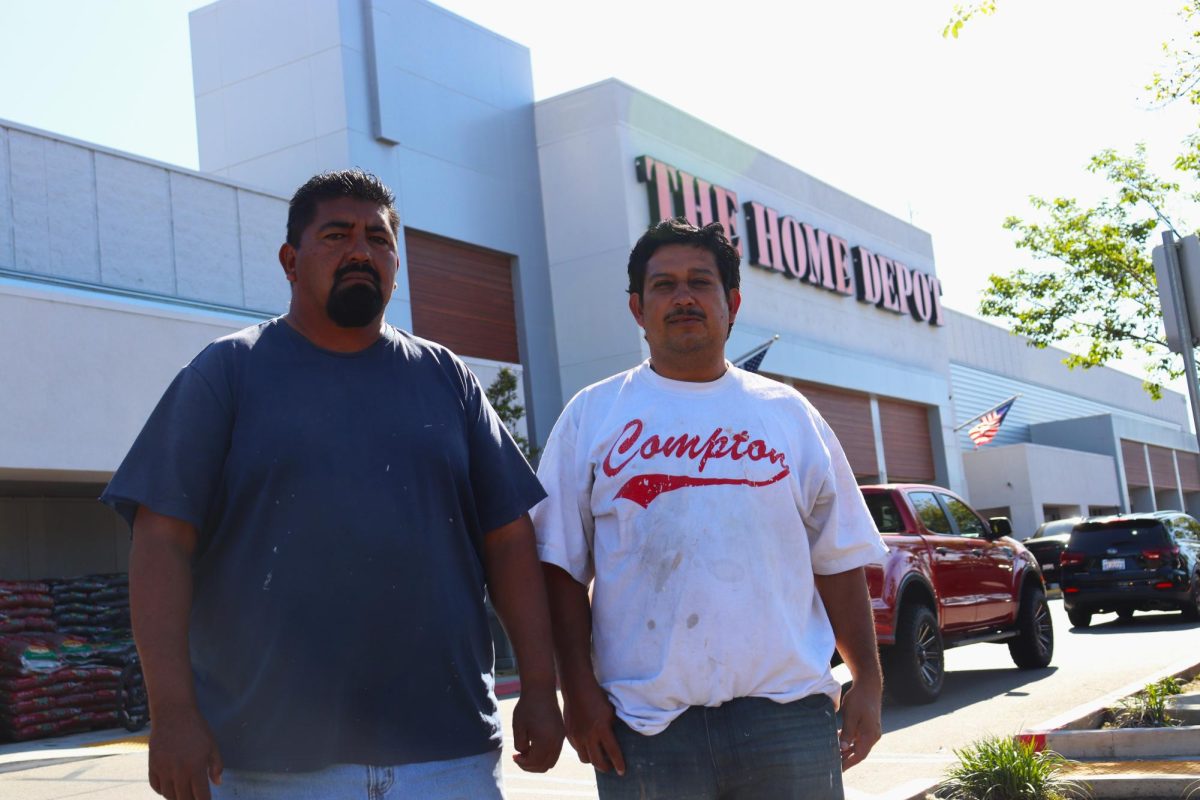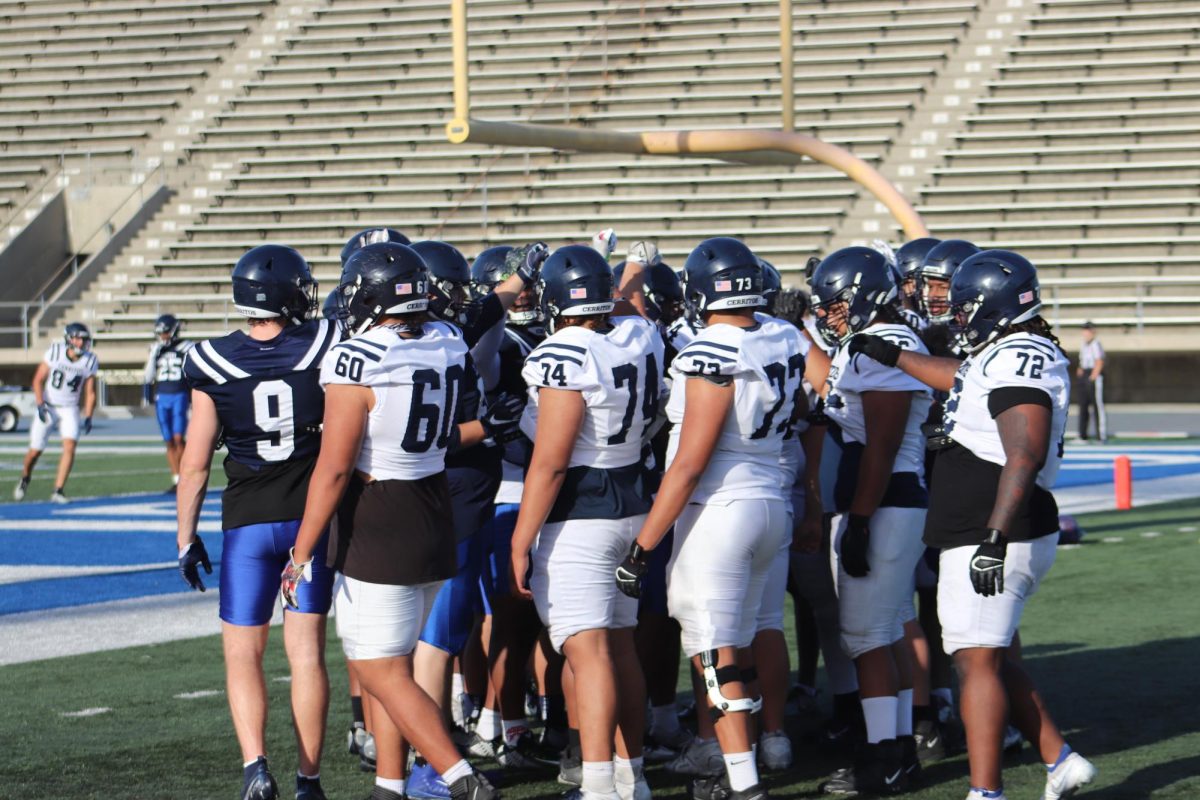Just across the street from campus–idling in the crowded Home Depot parking lot through sunshine and storm–are dozens of day laborers, men willing to take on just about any task for daily, under-the-table pay.
Raul Quintanilla, a man in his 40s and another man wanting to be referred to simply as “Jose,” 59, are apprentices of all kinds of trades. They’ve been construction workers, movers, assemblers, cleaners, tree-trimmers, painters and on occasion, dead pest removal.
“We’ve done things you can’t even imagine,” Jose joked.
Their workday starts at 6 a.m. sharp and ends around 7 p.m. with job searches consisting of waiting for someone to roll into the parking lot looking for a specific task to be done. Those who are qualified negotiate pay, those who aren’t stand aside.
Currently, the market’s not doing so well. Three or four days can go by without anyone picking up any work.
Jose stressed that, “You have to be here day-after-day and trust that God will bring you something.”
When they are working, pay can vary anywhere from $25 for a whole day to $400 for just two hours.
“There was a kid who only got paid $5 for filling up a pallet with boxes and taking it to the UPS,” Jose recounted, “Here in the U.S. it might seem humiliating, but sometimes those $5 are enough for someone to buy a hotdog from 7/11 and satiate the hunger for that day.”
That’s when people decide to pay.
Raul recalled that, “Many times we’ve been on week-long jobs and they’ll refuse to pay us a cent. They tell us they’ll turn us in to the police.”
Nothing can be done.
“When you’re working for someone, we can’t tell if they’re going to pay or not because the ones that don’t pay are always so kind. You don’t know if they’re being kind because that’s who they are or because they want to cheat you.” Jose noted.
Raul assured that, “We communicate with each other and when that person [who has refused to pay in the past] comes, we’ll tell everyone that they don’t pay.”
When there’s a constant stream of work, the men save their money not for vacations or home improvements, but for the days when they come home empty-handed.
Raul laughed at the idea of retirement, “All we can do is save as much as we can. Our futures are not secured.”
“The most difficult part of our lives was raising our children, but they’re grown now,” Jose mused, “They go to school and work. They’re able to help out so that we’re able to save some for retirement, but while we still have our health, we work.”
He continued, “Our kids don’t need our help anymore–we need theirs, but they have their own lives. They didn’t ask us to bring them into this world; we won’t ask anything of them.”
Before he migrated from Mexico around 20 years ago, Jose worked on a ranch raising pigs, cows, goats and chickens. In El Salvador, Raul cultivated maize and beans.
Jobs have been hard to come by in the U.S. Employers check for legal documentation daily and are quick to give the boot when none are provided.
In the parking lot, no such problem arises.
Nevertheless, going from agriculture to day laboring has been hard, Raul explained, “Even more so when there’s no one to help you out.”
If they could have any job in the world, Raul would choose an office job where he could sit behind a desk, in the comfort of an air conditioned room. Jose would return to a concrete company he used to work at.
If he could go on vacation, Jose would go to a peaceful beach in Mexico, but forces beyond his control prevent him from this.
“We’re not here [the Home Depot parking lot, working as day laborers] because we want to be here. The system forced us to be here and that same system views us as the dregs of society,” Jose shared, “A very pretty white woman once stopped to tell me to go back to Mexico and that I was taking jobs away from others. I’m not taking jobs away from anyone.
“I don’t go door-to-door asking for work. People come here looking for workers to do what no one else wants to do. They treat us as if we’re alcoholics, drug addicts or thieves. The world spits on us. They call us lazy, but they don’t know we have families that depend on us–that we come everyday to fight for them here.”
According to the men, standing around for over 12 hours each day is the worst part of day laboring. Its physically exhausting, psychologically exhausting and the pressure of providing for their families along with the uncertainty of tomorrow’s prospects are nerve shattering.
But interspersed in the parking lot, among the shade of the trees, the men share meals. They partake in the only fun men in their positions can, fervent discussions on the latest soccer game.
The optics are never good. They say that standing, waiting for work gives people a negative perception of them that bolsters Latino stereotypes.





















